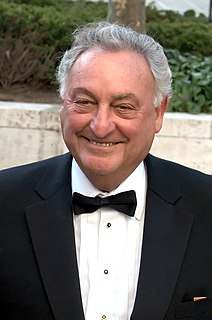A Quote by George Eliot
Science is properly more scrupulous than dogma. Dogma gives a charter to mistake, but the very breath of science is a contest with mistake, and must keep the conscience alive.
Related Quotes
Trouble arises when either science or religion claims universal jurisdiction, when either religious dogma or scientific dogma claims to be infallible. Religious creationists and scientific materialists are equally dogmatic and insensitive. By their arrogance they bring both science and religion into disrepute.
The history of science shows that the progress of science has constantly been hampered by the tyrannical influence of certain conceptions that finally came to be considered as dogma. For this reason, it is proper to submit periodically to a very searching examination, principles that we have come to assume without any more discussion.
Science is like society and trade, in resting at bottom upon a basis of faith. There are some things here, too, that we can not prove, otherwise there would be nothing we can prove. Science is busy with the hither-end of things, not the thither-end. It is a mistake to contrast religion and science in this respect, and to think of religion as taking everything for granted, and science as doing only clean work, and having all the loose ends gathered up and tucked in. We never reach the roots of things in science more than in religion.
Our creationist detractors charge that evolution is an unproved and unprovable charade — a secular religion masquerading as science. They claim, above all, that evolution generates no predictions, never exposes itself to test, and therefore stands as dogma rather than disprovable science. This claim is nonsense.






































